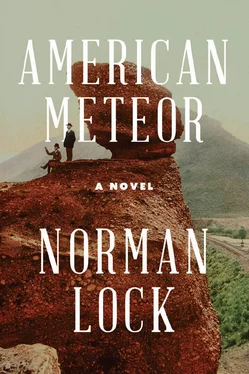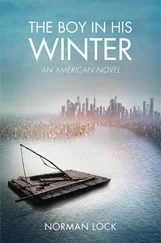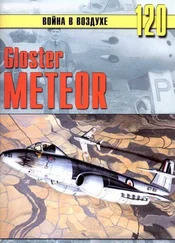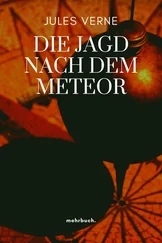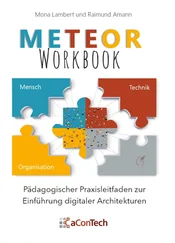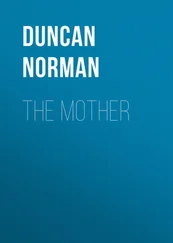“Will you show him your devotion one last time?” the general asked, after telling me in the simplest terms why I’d been summoned. He had stressed the word him , as if in his mind’s eye, the h had been a capital letter reserved previously for the Almighty.
I stood and drew myself up to my full height, which at an inch above five feet was hardly impressive, and said in the manliest voice I could muster, “I will, sir!”
Grant beamed down on me, as though he were astride his beloved horse, Cincinnati.
“You won’t disgrace us, will you, boy?” said Stanton, with vinegar that could have pickled.
I did not bother to answer him, looking instead at the gray eyes of my general, set in the kindliest of faces.
“He will not,” he said, and I knew that I would rather fall on my bugle (I had neither sword nor bayonet) than disappoint him. He saw my resolve and pronounced it “good.”
What followed was one of the most remarkable things ever to happen to me. While Stanton grumbled a sort of basso continuo of disapproval, Grant promoted me, then and there, to the rank of sergeant and pinned the Medal of Honor on my blue sack coat.
“It would be unbecoming to the president for you to accompany him to Springfield undecorated,” he said.
Saluting him, I bit my tongue as a child might pinch himself to confirm his presence in the waking world.
Grant returned my salute with a veteran nonchalance and, with a smile of goodwill, dismissed me. (We would never meet again, though he’d help me twice more.) I returned to the hospital, spruced myself up, and exchanged the bandage for the leather eye patch I would wear henceforth. Next morning, I collected my bugle and haversack and walked through the drizzle to the Baltimore & Ohio Depot to await the funeral train’s departure.
The wet fields were green with ryegrass and timothy; the willows drooping over the Potomac, the dogwoods, and elm trees called “American” were in leaf. I caught beneath the rain’s scent that of the lilac. New lambs foraged the meadows while robins tugged worms from the germinating earth, as on any ordinary April morning. I had seen spring arrive many times before — to battlefields from the Peninsula to Pennsylvania, to the waste grounds of the Five Points and the ash heaps of the Battery. I could not be deceived by Easter promises. The natural world was not opposed to humankind, merely indifferent to it.
Like most of my countrymen, I believed that we should subdue nature or, failing that, destroy it. According to Genesis, God gave us dominion over the earth and everything that comes of it. On the Great Plains, the army would slaughter buffalo to deprive the Indians of sustenance. Then it would slaughter the Indians. They were in the way of progress and the American meteor, which must fling itself — a blaze of glory — across the Mississippi to the Pacific. After the Washita River massacre and the bone heaps I saw above Bear River, my conscience began to gnaw at me. I wished I could have it out, like tonsils.
At eight o’clock, the train prepared to leave the depot. A framed portrait of Lincoln stood in front of the locomotive’s funnel, from which sparks showered into the morning air as the engine overcame its reluctance. On so portentous a day, one might have scried the future in the embers, but I could not. Foreknowledge wouldn’t be granted to me until later, near the Little Bighorn.
Washington City to Springfield, Illinois, April 21–May 4, 1865
Mostly, I remember rain. It was an ordinary rain — signifying nothing — produced by whatever agency causes rain to fall; and it fell according to laws governing natural phenomena. That is to say, there was nothing in the least unnatural about it, although it interfered with the enjoyment I took, standing on the rear platform, adorned with my new medal and stripes.
I thought myself an exceptional young man when I raised Jericho to my lips and blew ardently while the train slowed to let country people gawk. In the big cities en route to Springfield, I played my bugle while Mr. Lincoln’s coffin was taken off the train and laid on a fancy hearse. I admit I swaggered behind the catafalque drawn by black-plumed horses, between mobs of mourners, down the main streets of Baltimore, Harrisburg, Philadelphia, New York City, Albany, Buffalo, Cleveland, Columbus, Indianapolis, Michigan City, Chicago, and Springfield. In twelve days, the nine funeral cars of the so-called Lincoln Special traveled, in slow and lugubrious procession, one thousand six hundred and fifty-four miles of railroad track, past four hundred and forty-four towns and cities.
I was a fair-haired, clean-shaven, well-turned-out young man, and I swear the girls did not know whether to look at me or the coffin. I carried Jericho under my arm, though I did not perform at the viewings. Buglers attached to the honor guards of the cities where we stopped played. I could have done just as well as they, but the twin vanities of politics and civic pride were against me. To tell the truth, which I can do more readily now that I am beyond temptation, I was secretly glad. I feared my hand would shake in front of the tens and hundreds of thousands of mourners lined up in their black hats and clothes to see the dead man’s face. They knew in their bones, wearied by many hours’ waiting, that this occasion, however somber, would be one to lord over those who missed it. They’d have put a pen into Lincoln’s hand if they thought he might, by galvanism or sympathy, give them his autograph. You know what people are like.
In recollection, the cities where we stopped run together, but I vividly recall Cleveland, where a reporter and a photographer from the Cleveland Morning Leader were assigned to do a piece about the “The Bugler of Five Forks and the Lincoln Special.” I have it yet: two columns and a steel engraving of me holding Jericho against my Union coat, next to the Medal of Honor — my eye, caught in the coruscation of the magnesium flash, appearing wide and startled. I would have preferred a brave, unblinking look; nevertheless, I was pleased. Ever since childhood, I’d known that perfection is not of this world and, in all likelihood, not of the next. I was full of myself, my head turned by meeting General Grant and by my shiny decoration. No matter that I deserved neither honor. Or maybe I did, for having suffered sixteen years on this godforsaken planet. My emergence from obscurity had been abrupt. Like an owl surprised in a dark corner of the barn, I was dazzled by the unexpected light. But it didn’t last; neither my celebrity nor vainglory lasted much beyond Springfield, where Lincoln and his son Willie were carried to their rest on a gaudy silver-gold-and-crystal hearse lent by the city of St. Louis. Twelve years later, thieves were caught stealing Lincoln’s coffin, intending to ransom his remains for the release of the infamous Ben Boyd, jailed for counterfeiting. You know what people are like. I always did. In my life, I was never disillusioned — never lost my innocence, for I had none to start with.
Chicago was memorable for the Irish laundress who gave me the eye, or maybe I gave her mine, as I walked behind the hearse, pulled by eight black horses down Michigan Avenue toward the courthouse. I left the procession and joined her at the curb. She was my age or a little younger— pretty in the way of colleens everywhere, although her face and hands looked boiled. I’d seen enough of her kind to know that in ten years she’d lose her prettiness to steam and lye. She wasn’t in the least bashful, having the flippant manner of the Irish, who — they are quick to tell you — are no worse, or better, than anyone else except the Negroes. I liked her and reached out to touch her mouth; she bit my finger and laughed.
Читать дальше
